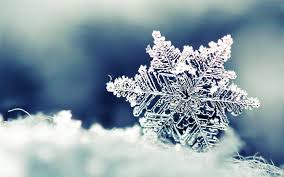It depends. Cold weather can be hard on your health in some ways, but it also be good for it, reports the January 2010 issue of the Harvard Health Letter. Most of us spend the winter trying to stay warm, but a little bit of exposure to cold may not be such a bad thing. There are two types of fat in the human body: white fat and brown fat. Brown fat is the heat-producing, calorie-burning fat that babies need to regulate their body temperatures. Most of it disappears with age, but adults retain some brown fat. Dutch researchers reported findings last year that showed that moderately cool temperatures of 61° F activated brown fat in 23 of 24 study volunteers. This is a good thing because brown fat burns calories more efficiently than white fat, and so may help control weight.
It can be tempting to spend the coldest mornings safely tucked under the covers; it’s only natural to want to avoid the most brutal temps. But during periods of such weather-induced isolation, we tend to reach out to contact our closest friends and family on the phone, and end up chatting with them for longer than usual, according to studies of 2012.
For some insects and even animals the freezing cold is not suitable for them and regarding our health well look here; during the summer of 2012 — when West Nile cases were climbing — much was made of the milder 2011-2012 winter and its effect on the disease-spreading mosquito population. The pests thrive in milder climates, meaning they were able to survive — and breed — all winter, just waiting to feast come spring. Freezing or below-freezing temps might kill off some skeeters (and ticks), thereby protecting you from the illnesses they are known to spread.
Through Psychology Today, some research suggests that if the weather never changes, you start taking that sunshine for granted. Shivering through the cold makes those warm spring days seem even better when they finally come along.
There’s a reason putting ice on an injury works. That drop in temperature reduces inflammation in, say, a sprained ankle or stubbed toe. But the theory works on a much grander scale, too — cold temperatures can reduce inflammation and pain all over. In one recent study, researchers in Finland studied 10 women as they took 20-second plunges into near-freezing water, and also partook in sessions of cold-body cryotherapy (exposing the body to ultra-low temps for brief periods). After being exposed to the cold, participants’ blood showed three times as much norepinephrine, a naturally occurring chemical that may help suppress pain. In fact, athletes and spa-goers even have a remedy of sorts available for muscle recovery. A 2011 study found that, at extremely low temperatures, such treatments, called cryotherapy, did more for athletes to recover from physical activity than simply resting. Runners who were exposed to temperatures as low as -166 degrees F recovered from exercise faster than those who given other therapies or told to rest, The Atlantic reported. Live in a cold-weather climate? Then you’re well aware that we’ve got a few more weeks of icy temps to endure. But those bitter winds could be doing you more good than you’d think: Preliminary research shows they may lead to a longer life.
In a study published in a recent issue of cell, researchers from the Department of Molecular and Integrative Physiology at the University of Michigan discovered that worms exposed to cold temperatures demonstrate a genetic response that triggers longer life spans.
Studies have shown that exposure to freezing temperatures, even for short periods, can significantly increase your energy expenditure for hours afterward. Swim a few laps in cool water, or take a power walk in winter weather, to enjoy the perk up for your workout.
So enjoy the cold!


